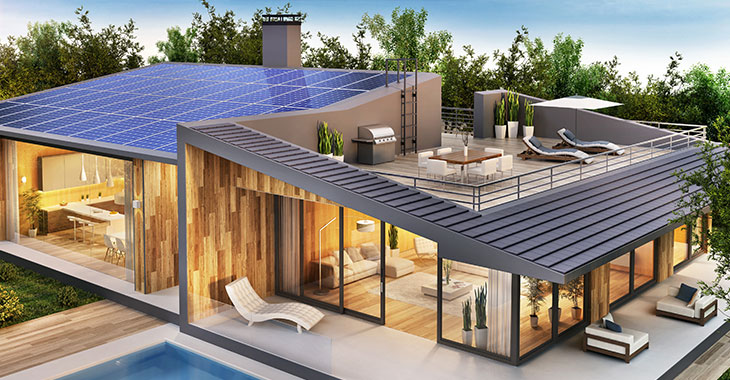Shop At Haya: Your Ultimate Shopping Guide
Discover the best shopping tips, trends, and deals for a smarter buying experience.
Energy Efficiency is the New Black
Discover why energy efficiency is trending! Transform your home and savings today with innovative tips and insights for a sustainable future.
10 Simple Ways to Boost Your Home's Energy Efficiency
Improving your home's energy efficiency doesn't have to be complicated. Here are 10 simple ways to make your home more energy-efficient and potentially save on utility bills. Start by considering insulation; proper insulation not only keeps your home warm during winter but also cool in the summer. Check your attic, walls, and floors for gaps and add insulation where needed.
Another important step is to replace old, inefficient appliances with ENERGY STAR-rated ones, which can significantly reduce energy consumption.
- Seal Windows and Doors: Ensure that all windows and doors are properly sealed to prevent drafts.
- Use Energy-Efficient Lighting: Switch to LED bulbs, which consume up to 75% less energy.
- Install a Programmable Thermostat: This will allow you to automatically adjust your home's temperature based on your schedule.
- Consider Solar Panels: If feasible, solar energy can drastically cut water and electricity bills.
- Optimize Water Heating: Insulate your water heater and lower the thermostat to save energy.
- Unplug Electronics: Devices that are plugged in can still draw power even when they're turned off.
- Landscape Wisely: Planting trees and shrubs can provide natural insulation and reduce cooling costs.
- Routine Maintenance: Regularly maintain HVAC systems for optimal performance.
- Use Energy-Efficient Blinds: These can help to regulate indoor temperatures effectively.
- Perform an Energy Audit: Consider hiring a professional to evaluate where you can make improvements.

Why Energy Efficiency is Essential for Sustainable Living
Energy efficiency is a cornerstone of sustainable living, as it not only reduces energy consumption but also minimizes the carbon footprint associated with our daily activities. By adopting energy-efficient practices and technologies, individuals and communities can significantly decrease their dependence on nonrenewable resources, which are often linked to environmental degradation. For instance, utilizing energy-efficient appliances can lower electricity usage, leading to reduced greenhouse gas emissions. Furthermore, enhancing home insulation and using energy-saving lighting can contribute to substantial energy savings, thereby promoting a more sustainable lifestyle.
In addition to environmental benefits, embracing energy efficiency can also yield economic advantages. By decreasing energy consumption, households can lower their utility bills, freeing up resources for other essential needs or investments. According to various studies, energy-efficient buildings tend to have higher property values and attract environmentally conscious buyers. Ultimately, prioritizing energy efficiency is essential for fostering a sustainable future, as it balances ecological responsibility with economic viability, encouraging both personal and societal well-being.
Is Your Home Energy Efficient? 5 Signs to Look For
Evaluating your home's energy efficiency is crucial not just for reducing your utility bills but also for minimizing your carbon footprint. To determine if your home is energy efficient, start by checking for noticeable drafts. Open windows and doors can significantly compromise your home's insulation, leading to unnecessary energy consumption. Additionally, inspect your heating and cooling systems for regular maintenance, as outdated or poorly functioning units often drive up energy costs.
Another important sign of energy efficiency is the condition of your insulation. If your attic, walls, or floors lack adequate insulation, you may be losing valuable heated or cooled air. Furthermore, consider your lighting; switching to LED bulbs can drastically reduce energy usage compared to traditional incandescent bulbs. Lastly, look at your appliances and electronic devices—Energy Star certified products are designed to consume less energy and can be a reliable indication of a more energy efficient home.